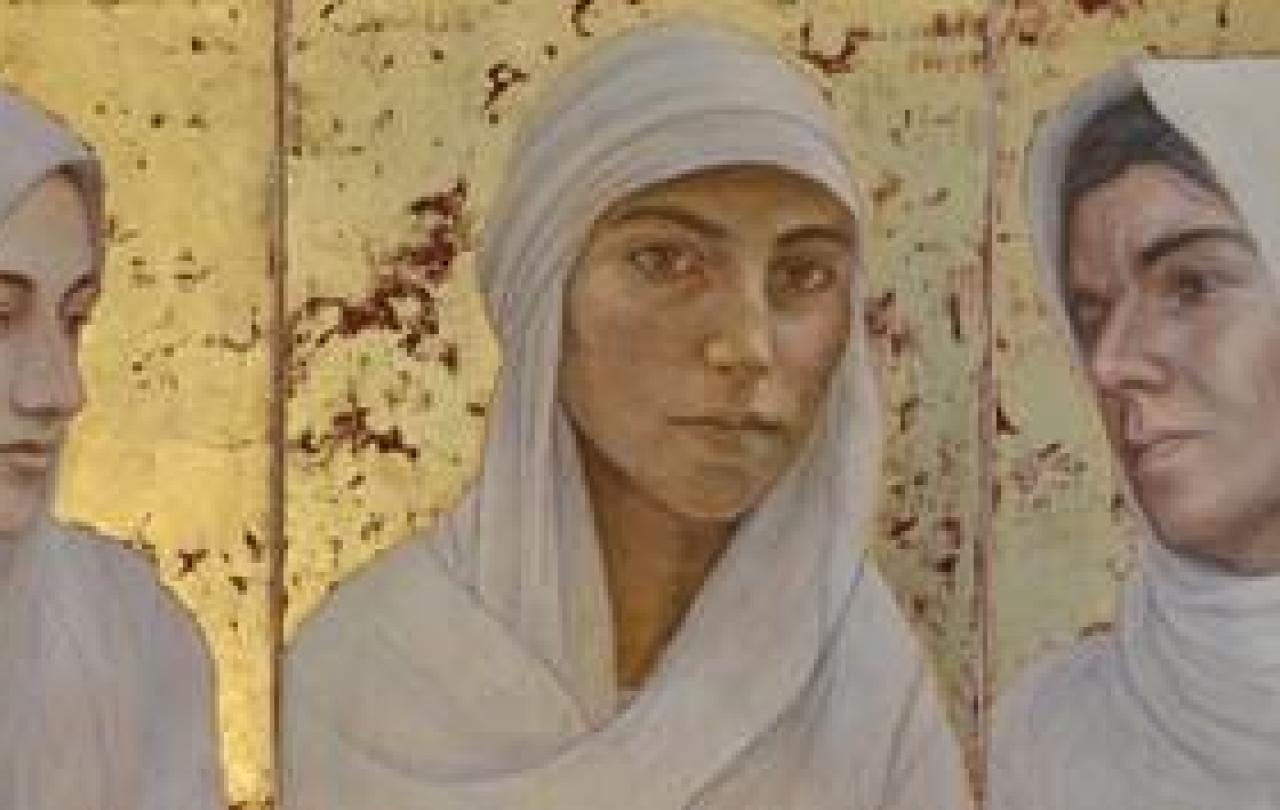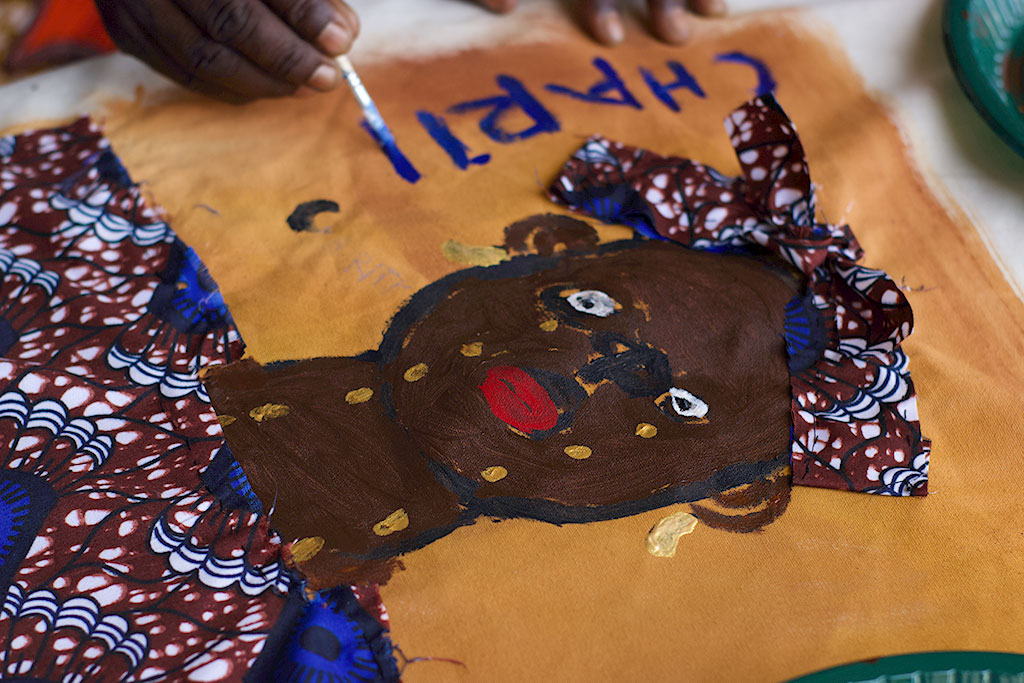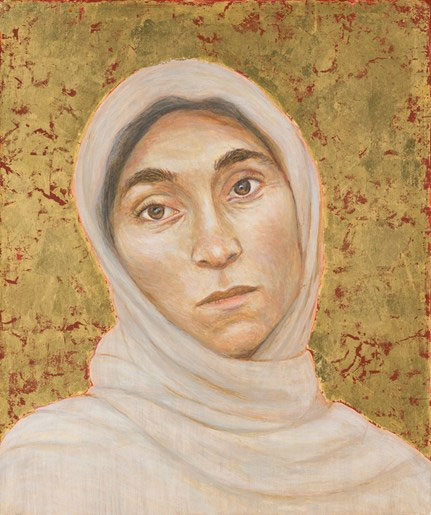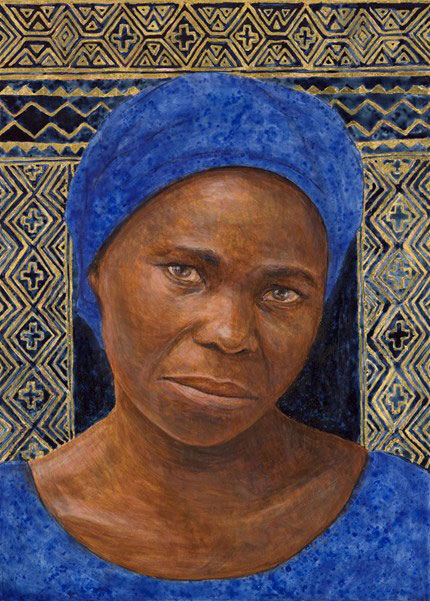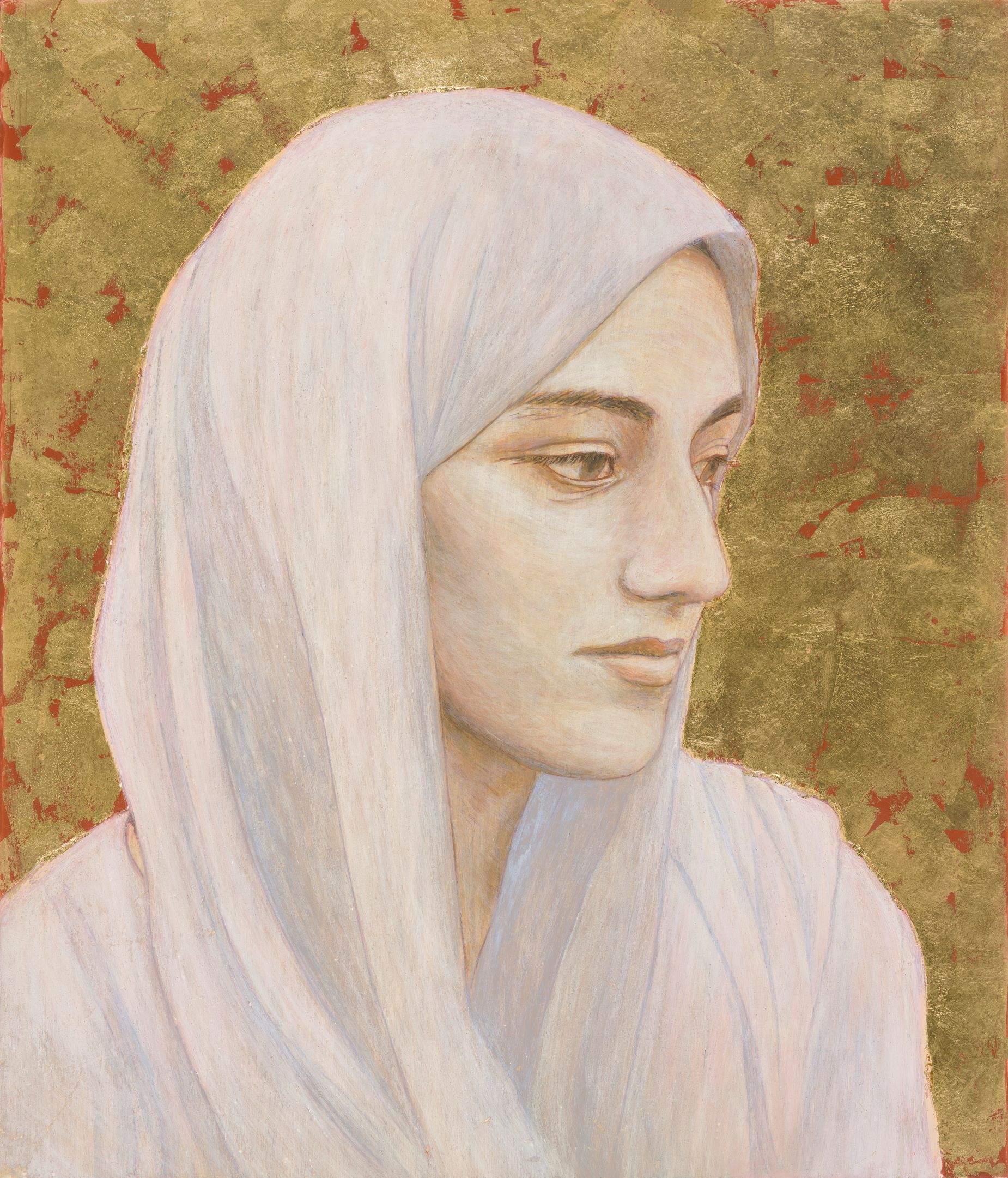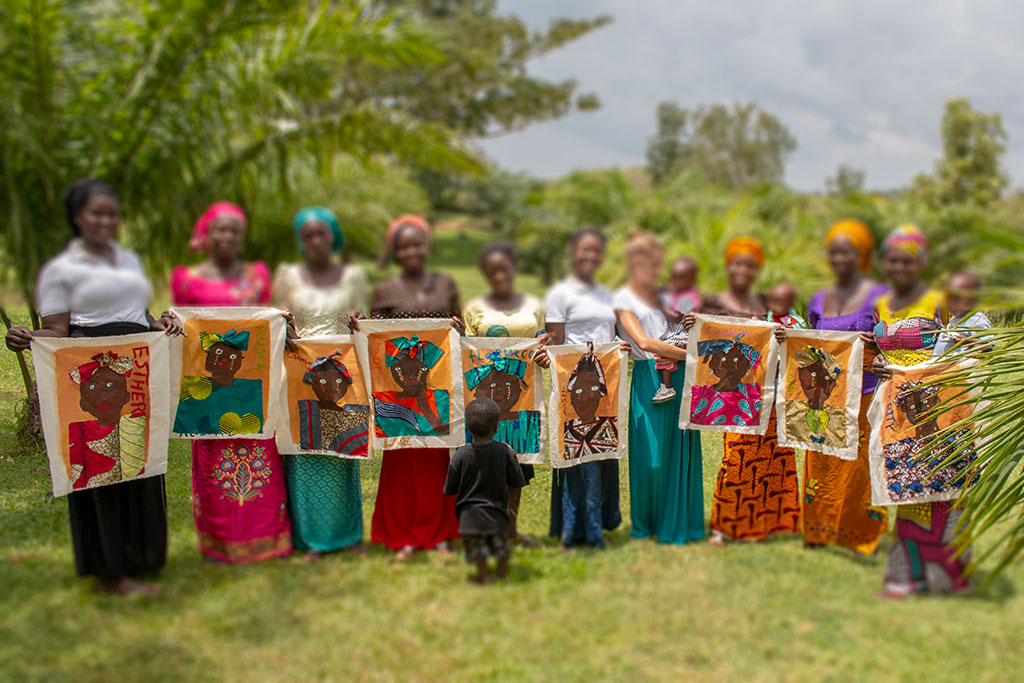
'Mehdi' is Iranian and a converted Christian; now living in the United Kingdom, he tells Belle Tindall his story. His name has been changed to protect his identity.
Can we start with your own story? How did you become a Christian and how did that shape your life in Iran?
Oh, yeah, absolutely. So I was eighteen when I came to Christ. And it was through my older brother who is six years older than me. He was dealing with lots of problems like depression, mental health and drugs and stuff for a few years. He was struggling with violence a lot outside the house, and then inside the house too. He would become really violent and start lots of fights, especially with me. And I was very young at that time, I was around 12 years old.
I was hurt, and scared, and angry and bitter towards him. But when I was nearly 18, he had this experience with Jesus through one of his friends who had converted from Islam to Christianity. And he just had this experience of, like, new birth in Holy Spirit and he completely changed. He became really calm and kind. And it was very vivid - the changes in him.
And I was struggling too, so I became really curious. One day, he was watching some videos about Christianity, one of them was of two pastors chatting through the gospel, and I asked him if I could watch it with him. Which was very unlike me, I wasn’t religious at all. I mean, I was Muslim, and I used to practise a little when I was younger, but I wasn’t serious about it because it never worked for me.
So, I watched a video I heard message of the Gospel, and I could feel it – the love, the kind of security that Jesus was offering me, and the salvation. And so I prayed at the end of that video and my life completely changed.
Literally, the day I prayed, I just felt completely different. It was just a supernatural peace. And I fell in love with the Bible instantly, I began reading the Bible constantly, and my curiosity was so evident that my brother took notice. Because I didn't actually tell my brother that I had prayed a prayer as a result of the video. And so I said to him, ‘I don’t know what’s happening to me’. He smiled and just hugged me, and said – ‘you’re a Christian now’
And on that day I realised that I had become a Christian.
So yeah, God completely transformed our relationship, and instead of fighting, we started praying together and trying to explore what it all meant. But it was very difficult because Christianity is banned Iran. We went to one of the church buildings, which was built before the Islamic revolution; we walked up and knocked on the door, and said ‘we’re Christians now, can we come in? Can we visit the church? Can we have a look inside?’ And he said ‘no, I'm sorry, you're not allowed in’. There were cameras at the door, we were Muslim converts, and we were being watched.
So, that day we just became really discouraged because we suddenly realised, ‘oh, it's not going to be easy to be a Christian’.
By some miracle, we got in contact with some other underground Christians, and we started to see each other. We would meet in our houses and read the bible together and share storied, sing some worship songs. We found some ways of accessing Christian resources, like worship songs, hymns books, things like that.
By this time, I was twenty years old.
And after a year or so of life looking like that, with these regular meetings, I was getting ready for work one morning and there was a knock at my door. I opened it and there were ten or so officers standing in front of the house. So, they raided and searched our house, they didn’t say why, they gave us no information – so I guessed it was because of my faith, but I didn’t know. It’s just that I had heard stories of this happening.
And because we would hear about the stories around us happening to.
But, we didn’t think that what we were doing was serious enough to get their attention. There were only 10-15 of us, we were just gathering together casually. We weren't really organised. And also we weren’t in any way in touch with foreign (Christian) organisations, which they are really sensitive about it.
Because they see that as a political activity, you see. They believe that Christianity is a weapon of Western countries, with a long-term plan to convert Islamic countries like Iran so that they can alter the culture and take the power. Because, in Iran, there’s a very high value placed on religion.
But anyway…
The officers came in and collected up everything they could find that was related to Christianity in some way. Then they put handcuffs on me, my brother, my sister and my dad (they had also become Christians by this point) and they blindfolded us and put us in separate cars.
We had no idea where we were being taken, but we arrived at the Intelligence Services Detention Centre, where they interrogated us. They questioned us about our activities, our gatherings, who we knew.
They released my family that day, but they kept me in because I was the most active Christian and because I was being stubborn. I wasn’t giving them the information that they were after, I wasn't responding to their questions or commenting on my faith, because I felt like Jesus was our friend, you know?
Life was becoming very unbearable, Jesus was our only solution
And it’s the same for many Iranians. There were people around us who are who were, and still are, dealing with lots of difficulties because of the economic situation, because of the oppression and corruption of the government, as well as the terrible economic situation. It feels like there’s no hope, no solution. The only solution can be found in the hidden places, it’s Jesus. For us, he became the hope of a new life.
And so, I saw Jesus like that and it gave me the strength to go forward into whatever was coming next. So, I didn’t give them any answers and they put me in solitary confinement. I was in there for twenty-two days. And I was only 20 years old. And as an ordinary person… you know, that context is very important! I never had any problem with the police, or crime, or the law, or with people around me. And all of a sudden, I’m in this intense place. I’m in high security, with blindfolds and handcuffs. This wasn't something that I was used to, it wasn't even something I could have imagined.
It was very, very, tough.
I was in a tiny room, it was two-metre by six-metres, and there was a matt on the floor with two sheets, a toilet in the corner and that was it.
It was incredibly difficult. Every moment, you’re expecting something really bad to happen to you. You don't have from your family or your friends, and you just think of all the worst possibilities that could happen at any moment.
Are they about to torture me? Where are my family? What’s happening to my friends right now?
For twenty-two days, not knowing how long I was going to be held here, I was bombarded with all these negative thoughts.
I felt like I was being mentally and emotionally crumpled like a piece of paper, you know, trapped in this small room. But I had very powerful moments with God in that dark environment. He helped me to go beyond the circumstances that I was in, through the power of the Holy Spirit, who not chain could ever bind.
After twenty-two days, they released me and two others on bail, and they took us to court, our trial lasted a year. They finally gave us an eight-month suspended sentence and warned us that if we were caught continuing our Christian activities within a five-year period, we’ll be brought back in and our sentence will be severe.
So, we were in real danger.
But it was almost impossible to not to continue with our Christian activities because Jesus was our whole life. Plus, we were a family, we couldn't leave each other. And so we started to see each other, but in public places.
Little by little, the group, our small group grew to around two-hundred people.
So, we scattered. We met in small groups around the city. We couldn’t be too organised, because we had to confuse the government. It was a huge challenge, to keep changing place and time. We couldn’t use our phones because they were constantly being tapped, we couldn't even take them with us because they were being tracked. We became paranoid about every person we’d meet, wondering if they were undercover officers or spies.
Four years after my first arrest, I was arrested again.
This time we were waiting for it. We were playing with our lives. We just couldn’t help it. We were ordinary people who were ready to leave everything; our families and friends, we were ready to pay the price. Because Jesus had truly changed our lives.
So, they officers came again, they raided my house again, and this time it was far more aggressive. They took seven of us this time and the same thing happened – blindfolds, handcuffs, interrogations, solitary confinement – but this time I was in there for over a month. And it was way more intense; there were lots of horrible threats, mind games and mental torture.
And then they sent us to the central prison, without a trial or a hearing – which is illegal. We didn’t know our charges or our sentence- nothing.
And that prison had 8,000 prisoners and a very bad reputation. You know, it was overcrowded with no capacity, and so it was very violent and had very poor conditions. We were all terrified to go there. They kept us there, in that prison, for three years. But still, God was a light in that dark place. Some fellow prisoners even came to Christ.
Can you tell me when and why you left Iran?
Eight months after I was released, I was advised to leave Iran. They told me that if I stayed, my life was going to be very hard. They wanted me out of the country.
That I decided to leave.
So, I left Iran, and I went to Turkey, the neighbouring country, to seek asylum. I was there for three years.
This was another difficult chapter for me; the new culture, new language, new country. Plus, the immigration police, unfortunately, they were corrupt just like the Iranian police. And the way they interrogated me had me re-living so much trauma. I wasn't allowed to leave my city as an asylum seeker, you have to go and have your fingerprints taken every two weeks – and I was just a prisoner again.
I met my English wife there though. That’s the beautiful part of this story – we met at church, served together, fell in love, got married and eventually moved to the UK.
So, what is it like being an Iranian Christian in the UK?
There have been plenty of culture shocks. In Iran, my ‘church’, we didn’t have a building, we didn’t have any resources. It was a glimpse of the New Testament, really, with everything that we went through. We lived like the disciples – encountering Jesus personally, being ready to follow him, even if it had to be in secret. So, obviously, church in the UK has been quite a shock.
There are different reasons why people go to church here in the UK: because their family go, because it’s the right thing to do, because they want to be a better person, because they’re lonely. Although these reasons exist in Iran too, if you want to go to an underground church as a Christian, you really have to want it. Because you take a huge risk.
I think it’s been a privilege for me to experience a house church in Iran, to understand the value of the salvation that Jesus has given me. You know, at one point, when I was in solitary confinement – I had no family, no friends, no freedom – Jesus was literally all that I had. Jesus was everything. All my focus was on him, he was the only hope, he had all my attention.
Besides the struggles I had, I could still rejoice. I was praising him because they could take everything away from me, but they couldn’t take him away. In other words, the sweetness of salvation overcame the bitterness of imprisonment.
So, things are different, here. I have mixed feelings, really.
So, with everything that you have experienced, and knowing first-hand how dangerous it is to be a Christian in a country that regards it as a threat - can I ask you your thoughts the narrative that’s floating around, that people are pretending to be Christians to get refugee status here in the UK. What are your thoughts on such accusations?
First of all, I think the nature of the conversation is wrong. It spreads hatred and judgment, and creates an environment of suspicion that breaks trust between people. It's exactly like Mother Theresa said: 'when you judge people, you have no time to love them'.
Also, I think that the government are saying this to distract us from the things that are actually happening.
The violation of human rights, the right to both free speech and freedom of belief, in Iran is real, it’s true, it’s happening. The persecution that Christians are facing in Iran is absolutely real.
And, does that mean that some of them are leaving the country? Yes. I had to. I’m here. I had to leave my home. And there aren’t enough legal routes, there aren’t enough ways to seek asylum in countries like the UK. So, occasionally they have to smuggle in.
So, it’s true that Christians are leaving Iran. I’m one of them. And I was incredibly lucky, I got here safely and securely. Although, not as a refugee.
But if I had to come to this country by boat and sought asylum, would that be different? Would my story be false? Because even Turkey wasn't safe; Turkey is currently deporting Christians back to Iran, they’re arresting them, they’re closing down churches. In the last three years, they’ve kicked out most of the Christian missionaries. So, it could have happened, I might have had to smuggle myself here, with twenty other people, on a small boat.
And I come here, and I tell my story, and you tell me it’s not real?
If you come to the table with this mindset, if you’ve already made your decision about my life, if you’ve judged me already, and if you don't see me as a genuine Christian – you betray my humanity. You’ve betrayed the value of human rights.
No one wants to leave their country in the first place. So, one of the first accusations are, ‘oh, they're leaving because of the economic situation’. No, it's not true. The majority of people who are staying in Iran right now, they are dealing with horrible economic situations, but don't leave their country. We leave when we’re in danger.
How the government go to the table matters. Their compassion is at zero at the moment.
The government violates human rights in Iran. We know this. And yet, so few people leave. The numbers are so small, you can’t rightly say ‘oh, if we accept this person, the whole of Iran will try to enter the country’, it’s just not true. It’s just playing with words.
The picture they are painting of the situation is not accurate. So, first they need to fix that, and then talk about the desperate and oppressed person who has genuinely been through something awful, who has had to leave their country, who has put their life at risk.
We can’t just forget about compassion and generosity.
And so, when we say ‘these Iranians are all faking Christianity to gain asylum’ – that’s not the true issue.
The question is: how has a government that claims to support Human Rights responded responsibly and appropriately to the discrimination and violation being faced by Christians? What are the solutions? How can their lives can be protected and saved when there is no legal route for them to seek asylum in a safe country like the UK?








